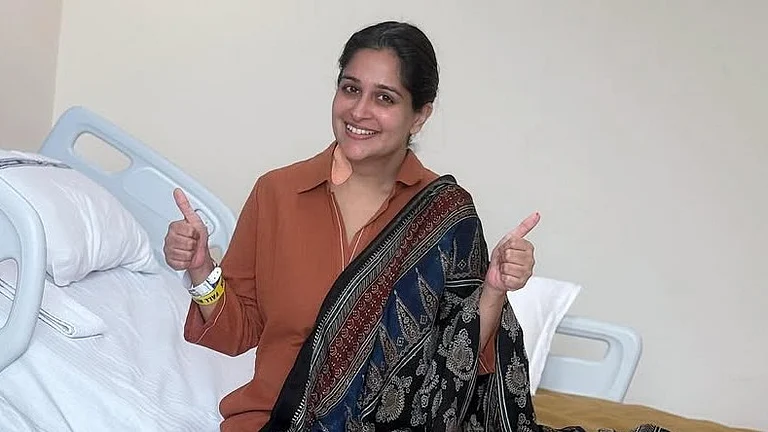Invasive and uncomfortable throat cancer tests like nasal endoscopy and biopsies may soon become a thing of the past. US researchers say cutting edge AI technology may soon be able to detect early signs of throat cancer simply by analyzing subtle changes in your voice. This breakthrough could make diagnosis faster, easier, and more accessible than ever before.
Following analsysis of over 12,000 voice recordings, the researchers found that AI could distinguish voices of people with early vocal fold problems from healthy voices, especially in men.
Usually, when there are issues with the vocal cords—such as lesions or early cancer—the tone, pitch, and clarity of the voice change subtly, AI can recognize these changes from voice recordings.
“Here we show that with this dataset we could use vocal biomarkers to distinguish voices from patients with vocal fold lesions from those without such lesions,” said Dr. Phillip Jenkins, a postdoctoral fellow in clinical informatics at Oregon Health & Science University, and the study’s corresponding author.
This discovery means that soon people might be able to detect voice box cancer early simply by recording their voice, without the need for painful or time-consuming tests.
Dr. Jenkins says, “Our voice could become a new, easy way to monitor health and catch cancer early.”
Further testing with larger datasets and clinical trials are needed, but this technology could be available in the next few years.
Voice box (laryngeal) cancer is a serious health problem worldwide. Every year, millions of people are affected, and early detection is key to better treatment outcomes. In 2021, there were an estimated 1.1 million cases of laryngeal cancer worldwide, and approximately 100,000 people died from it. Risk factors include smoking, alcohol abuse, and infection with human papillomavirus. The prognosis for laryngeal cancer ranges from 35% to 78% survival over five years when treated, depending on the tumor’s stage and its location within the voice box.
Catching cancer early is key for a patient’s prospects. At present, laryngeal cancers are diagnosed through video nasal endoscopy and biopsies – onerous, invasive procedures. Getting to a specialist who can perform these procedures can take time, causing delays in diagnosis.
“Voice-based health tools are already being piloted. Building on our findings, I estimate that with larger datasets and clinical validation, similar tools to detect vocal fold lesions might enter pilot testing in the next couple of years," predicted Jenkins.























